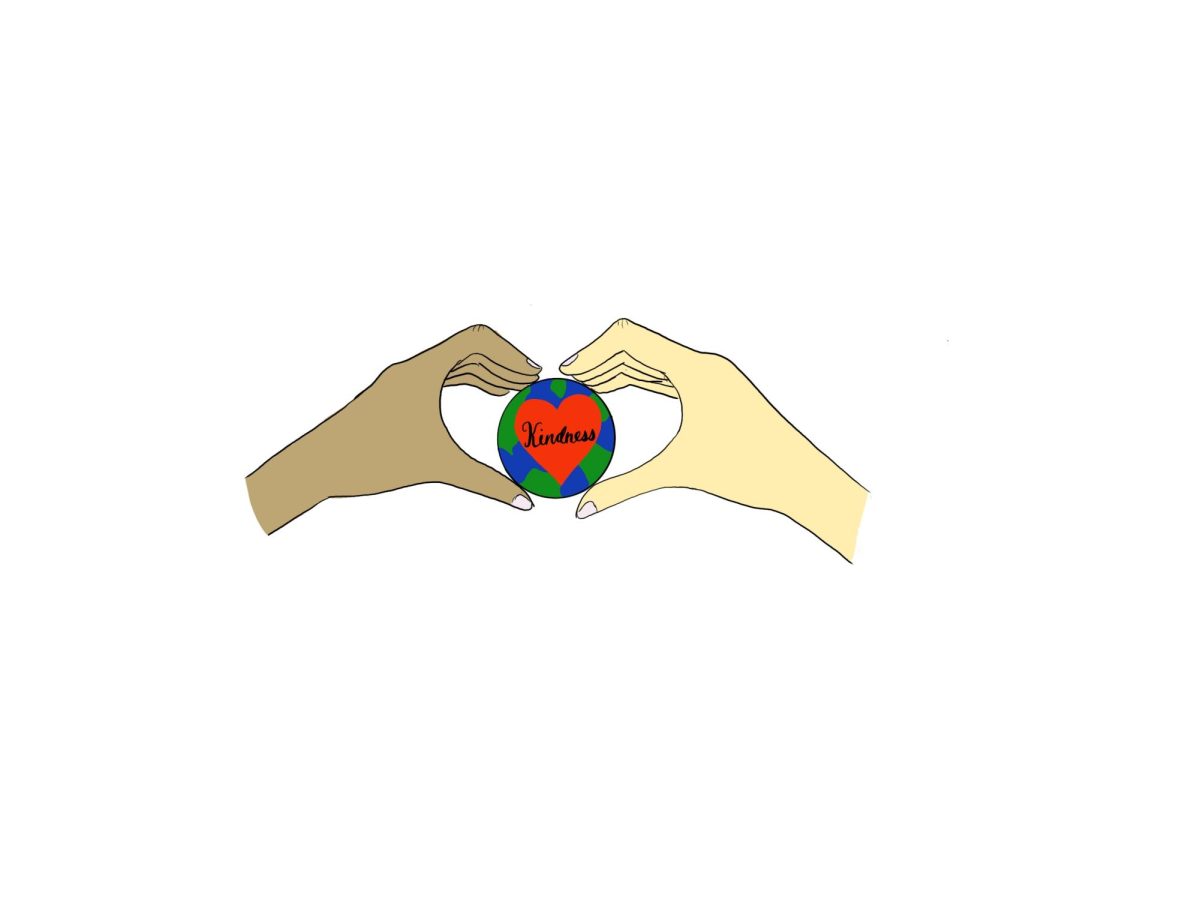
Leila Safa '28
We take something like kindness for granted. Although many of us don’t think too intently about it, kindness is deeply integrated throughout our lives; little strands criss-crossing and overlapping and interweaving. It’s what transforms the day-to-day moments into something overflowing with meaning.
Kindness means acting with respect and compassion. And, like any virtue, it is something that we can learn from each other and put into practice. We are born with the capacity for it. In fact, many scientists would actually say that we are born with the inclination for it. “A new study [from UCSB] suggests that, when time is tight, behaving in ways that serve the social good—being cooperative, generous, fair, and compassionate—is actually our first impulse; we simply have to act on it.” Little kids share toys just as often, and sometimes even more, than they fight over them.
Within kindness is a core sense of respect that is rooted in the act of taking a second look. It is what allows us to respond to others by understanding what is behind their reactions rather than the reaction itself. When a person acts in a manner that feels rude, for example, instead of taking that at face value, it can be valuable to consider things through a lens of empathy. Religion teacher Mr. Matthew Carroll urges others to take this approach, saying, “Look for what might be behind their behavior and the hard day they are [potentially] having.” What might they be going through? How can we help them?
Cinema has an answer. Mainly, it’s in the way it helps us all appreciate the mundane, or the way it allows us to engage meaningfully with life and human nature. But most importantly, a lot of films teach us how to be good people. Carroll says, “fiction helps us cultivate empathy.” And it does. Fiction teaches us how to understand the stories of people who are entirely different from ourselves. It allows us to hold empathy for things we may never even have second thoughts about on a daily basis.
In the summer of 2025, Superman was released. Directed by James Gunn as the forefront of a new collection of DC movies, David Corenswet stars as the twelfth rendition of a live-action Superman. There have been many, many takes on Superman and what he stands for, but in the original comics, he has always been a pillar of justice and goodness. In his brightly colored, almost childish, uniform, he stands out among most comic book superhero characters. That is what is so special about him. Gunn talks about the deliberate decision to keep the trunks on Superman, saying, “I was on the ‘no trunks’ team for a long time” But later, Gunn was convinced by Corenswet’s take on keeping the trunks in: “David said that Superman wants kids to not be afraid of him…He’s this incredibly powerful, could be considered a scary individual, and he wants people to like him. He wants to be a symbol of hope and positivity.”
Similar to this core ideal of Superman, the movie tells some exceptionally important messages about the genuine importance of kindness and learning to believe in the best of other people. In a conversation with Lois Lane, a journalist at the Daily Planet — often Superman’s love interest — she says, “My point is, I question everything and everyone. You trust everyone and think everyone you’ve ever met is, like…beautiful.” He responds empathetically with, “Maybe that’s the real punk rock.”
In the grand scheme of things, Superman is just a fictional character, but he is also more than that. For many people, these fictional characters within all forms of media—on the screen, stage, and pages—become pivotal figures for the way they navigate the world. They remind us that kindness is both simple and momentously life-changing. They remind us that there is beauty in the act of caring for each other and urge others to truly view compassion as something really precious.
In Superman’s final monologue against his enemy, Lex Luthor, he says, “I’m as human as anyone. I love, I… I get scared. I wake up every morning, and despite not knowing what to do, I put one foot in front of the other, and I try to make the best choices I can. I screw up all the time. But that is being human. And that’s my greatest strength.” It’s beautiful that Superman is portrayed in such a humanistic light. His mistakes, his flaws, but also his strengths, his inherent goodness, and his deep devotion to the people. It’s such a tribute to the character he has always been and will always be. Carroll says, “Kindness is a virtue that we can teach each other.” Superman teaches us kindness, and so do many other figures in the world — fictional and real. Looking towards those who surround each and every one of us, we can find kind minds and gentle compassion within tender hugs, soft conversations of understanding, and the beauty of a second glance. That will always be the real punk rock.